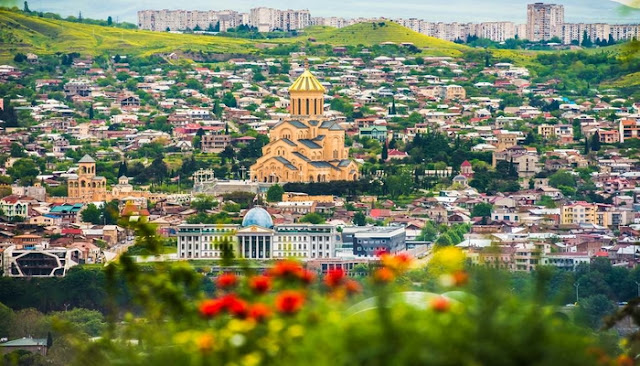Tbilisi City- Capital of Georgia Country
Tbilisi, Georgia
Tbilisi formerly known as Tiflis, is the capital and the largest city of Georgia, lying on the banks of the Kura River with a population of roughly 1.5 million inhabitants. Founded in the 5th century by the monarch of Georgia's ancient precursor Kingdom of Iberia, Tbilisi has served, with various intervals, as Georgia's capital for more than a thousand years. Under the Russian rule, the city was the seat of the Tsar's viceroy and has served, from 1801 to 1917, as the Imperial capital of the entire Caucasus, including Georgia's current neighbors.
Located on the southeastern edge of Europe, Tbilisi's proximity to lucrative east-west trade routes often made the city a point of contention between various rival empires throughout history and the city's location to this day ensures its position as an important transit route for global energy and trade projects. Tbilisi's varied history is reflected in its architecture, which is a mix of medieval, classical, and Soviet structures.
Historically, Tbilisi has been home to people of diverse cultural, ethnic, and religious backgrounds, though it is overwhelmingly Eastern Orthodox Christian. Notable tourist destinations include cathedrals like Sameba and Sioni, classical Freedom Square and Rustaveli Avenue, medieval Narikala Fortress, pseudo-Moorish Opera Theater, and the Georgian National Museum.
Indian medical students in Tbilisi, Georgia
Life At Tbilisi State Medical University (TMSU)
Tbilisi State Medical University is situated in Tbilisi which is the capital of Georgia. It is one of the most prominent universities in the Caucasus region. Despite its location, a little far from the heart of the city, it is well connected with frequent trains, buses, minivans and taxis. The university has a Latin motto: "Per Traditiones Ad Futurum" which means "With Traditions To The Future". It stands true as the university was built in the early 19th century and stands without losing its pride till date in the whole Caucasus region.
The university offers various courses with the main one being the "Diploma in Medicine", followed by various other courses such as Pharmacy, Nursing, Emergency Medicine, etc. 10% of students are foreign, most of them are from India (including me) and also from Sri Lanka, Pakistan, Turkey, Azerbaijan, Armenia, Triniad and Tobago, etc. The university is also recognized by some of the world's renowned organizations such as UNESCO, WHO, EMSA, EUA, etc. Students can enrol as a part of students exchange program and admission procedures are on the university´s website.
The universities in Tbilisi Georgia has its links with many clinics around the city which enables the students to get some clinical knowledge during their study time. The university also holds an annual cultural meeting for the foreign students which enables the students from different cultures to put forward their knowledge. There are also many conferences where many professors from the entire world visit the university and deliver lectures to the students and thus giving them a wide exposure to their field. EMSA, which also acts as the TSMU Students Self Government Union, conducts many seminars and conferences where students are given a chance to participate and share their thoughts on their field of interest with others. To conclude, TSMU is a good place to study. Enjoy it and make your dreams come true!






Post a Comment